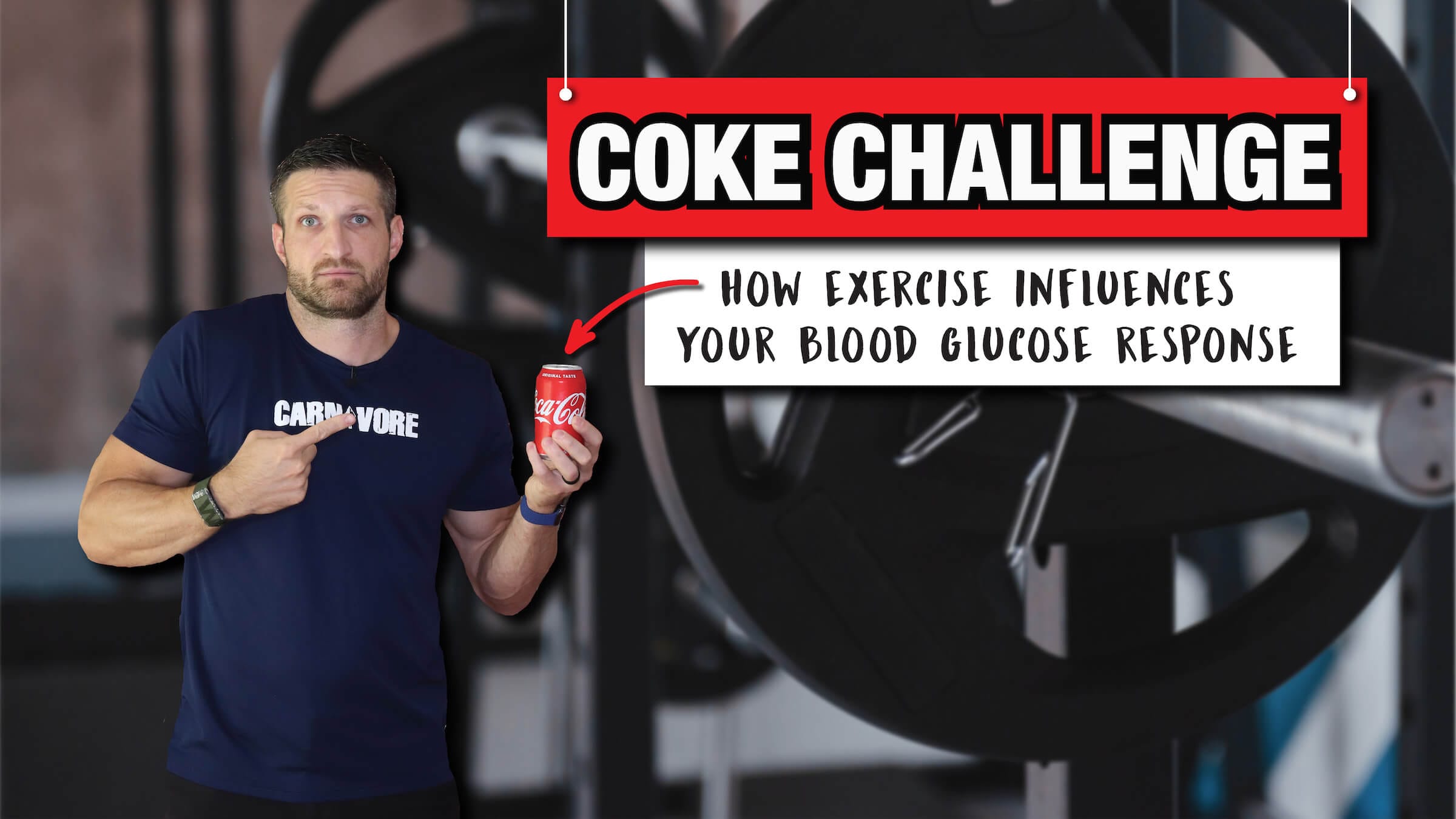If you’ve been searching for ways to improve your diet, I’m sure you’ve realized how much conflicting information is out there. What’s even worse is that most of the dietary recommendations from the very sources you’re supposed to trust (such as the USDA, your primary care physician and your nutritionist) are downright wrong and potentially detrimental to your health.
Despite millions of years of evolution and solid scientific evidence as to what constitutes an appropriate diet for humans, misinformation and reductionist thinking are still prevalent in the nutritional world. So in this article, I bust the top nutrition myths and explain why so much of the dietary advice you’ve been given throughout the years is dead wrong.
Note that I’ve covered many of the myths below in more detail elsewhere on the blog, and I’ll link out to those articles so you can find further information about each topic (including links to scientific research).
You can also watch the video version of this article on YouTube!
Myth #1: Eating Fat Makes You Fat

Many people believe the body stores the (excess) fat you consume directly on your hips or belly. But that’s not how the body metabolizes food.
This myth likely stems from the fact that each gram of fat has nine calories as compared to the four calories in each gram of carbohydrates and protein.
In other words, if you consume a gram of fat, you’re getting over twice as many calories as when you consume the same amount of carbs or protein.
So it might sound conceivable that if you maintain a diet that’s rich in fat, you would easily consume more calories than you burn. Fortunately, that’s not how the human body works.
Without getting into the weeds of human metabolism, let’s briefly talk about a hormone that plays a major role in our bodies: insulin.
When you consume carbohydrates, the pancreas releases insulin, which tries to get the glucose into cells so they can use it for energy. If your cells are saturated and cannot take on any more glucose, the liver converts that excess sugar into fat so it can be stored for later use. That’s the process that causes you to gain weight in the form of adipose (fat) tissue.
When you consume fat, your body doesn’t respond by releasing insulin, thus it does not cause an accumulation of fat tissue. That’s why you can maintain a diet consisting of 75-85% of fat (like I did for over two years) without getting fat.
I should mention there are several other factors that influence why the body metabolizes fat differently from carbs, but the one above is arguably the most important and easiest to understand.
Of course, there is such a thing as eating the wrong types of fat. But we’ll leave that to another myth that needs to be busted. For now, just understand that eating fat doesn’t cause weight gain or obesity.
Myth #2: Saturated Fat and Dietary Cholesterol Cause Heart Disease
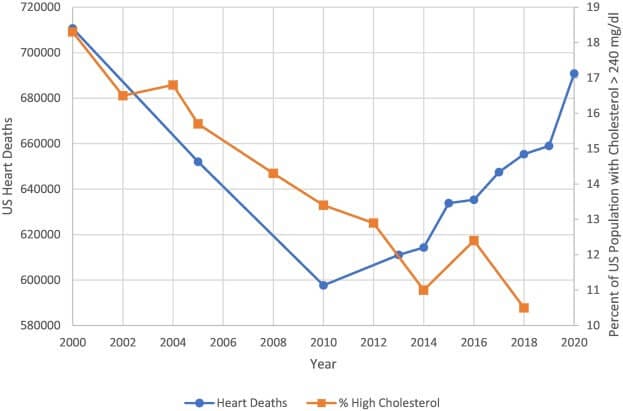
The myth that consuming saturated fat and dietary cholesterol negatively impacts your heart health and increases the risk of cardiovascular disease goes back to Ancel Keys’ infamous Seven Countries Study from the late 1950s.
Keys tried to correlate saturated fat and cholesterol intake with coronary heart disease. Unfortunately, out of the 22 countries for which reliable dietary data was available at the time, he cherry-picked the seven where his hypothesis was true and conveniently ignored other countries that showed a high intake of saturated fat but low rates of cardiovascular disease.
The bottom line is that there is absolutely no credible link between the consumption of saturated fat, high cholesterol and an increased risk of heart disease.
You can learn more about this topic in my post on saturated vs. polyunsaturated fats.
Myth #3: Vegetable Oils Are Healthier Than Butter

Some people think vegetable oils like canola oil are healthier than butter, lard, tallow and other sources of saturated fats because they’re made from vegetables. But the truth is that vegetable oils aren’t vegetables at all; technically, they’re seed oils, because they’re extracted from seeds using high heat and harsh chemicals like hexane.
That technical distinction is important because seeds have incredibly high amounts of highly inflammatory and unstable polyunsaturated fatty acids (PUFAs). When PUFAs oxidize during exposure to high heat, oxygen or moisture (such as during manufacturing or storage) they release free radicals that damage cell walls and create a host of other issues in your body.
Check out my article comparing saturated with polyunsaturated fats to learn more. But in a nutshell, I consider vegetable oils to be the primary cause of chronic disease, and I highly recommend removing them from your diet.
Myth #4: Eating Red Meat Causes Cancer

Another common myth is that eating red meat increases your risk of certain types of cancer. This myth goes back to a study that was published by the World Health Organization (WHO) in 2015.
While it should have been clear from the beginning that the very food we humans have consumed for millions of years (i.e., throughout evolution) doesn’t kill us, it took several years for scientists to officially debunk this myth and to “clarify” the WHO’s findings.
As far as I can tell, the main issue with the WHO report was that it included predominantly epidemiological (or observational) studies rather than interventional trials.
Observational studies on nutrition rely on food questionnaires that participants have to fill out. For example, you’d be asked to specify how often in the last year you consumed red meat, and scientists would then correlate that data with your health markers.
Aside from the fact that such food questionnaires are inherently unreliable — who remembers what they ate two months ago? — they’re often plagued by confounding factors.
For example, those studies don’t differentiate between a Big Mac and a grass-fed ribeye steak from a local farm; both get lumped together under “red meat.” More importantly, epidemiological studies don’t take other lifestyle factors into account, such as cigarette or alcohol consumption, or a lack of exercise.
I’d argue that someone who consumes predominantly fast food, smokes cigarettes and barely moves is more likely to develop a chronic disease (such as cancer) than someone like me who does none of that. Unfortunately, the fast-food eating type of person represents the majority of study participants simply because (in comparison) healthy-living enthusiasts are the minority.
The bottom line is that there is no credible evidence that consuming red meat (even if it’s processed) increases your risk of developing cancer (or any other disease, for that matter). More importantly, the longest-running study known to humans — evolution — would beg to differ.
Check out this article to learn more about why consuming the meat of pasture-raised animals is good for us and the environment.
Myth #5: White Meat Is Healthier Than Red Meat
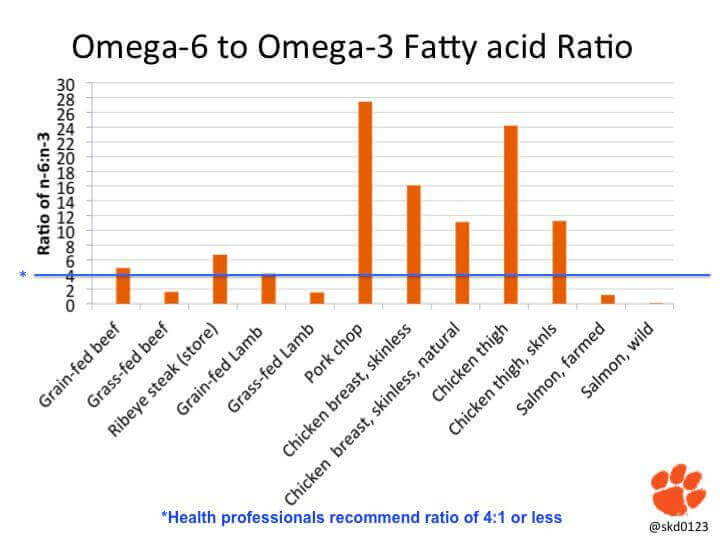
The idea that white meat (such as chicken) is healthier than red meat stems from the fact that red meat has more saturated fat than white meat. As we talked about earlier in this article, animal fats and cholesterol don’t clog arteries — and that should be sufficient evidence to bust this myth.
However, when delusional health officials reported that the consumption of red meat increases your risk of developing cancer, white meat gained even more popularity for the wrong reasons.
The truth is that most poultry is very high in inflammatory omega-6 fatty acids (especially compared to beef).
The reason for that is a combination of selective breeding (to select for the fastest-growing “meat birds” that can be slaughtered in weeks instead of months) and the use of feed that is naturally high in omega-6 fatty acids, such as corn and soy.
In comparison, meat from ruminants (i.e., cows, goats, sheep, etc.) has significantly lower concentrations of omega-6, even if they were grain-fed.
While that doesn’t mean you have to completely remove chicken from your diet, I recommend consuming more red meat than white meat. If you have a choice, go for pasture-raised birds and pick duck and turkey over chicken because of the lower omega-6 content in their meat.
Myth #6: Low-Fat Products Are Healthy

When the myth that saturated fat increases your risk of heart disease gained popularity, food manufacturers reacted by removing fat from their products and replacing it with highly processed carbohydrates. More specifically, they added sugar.
As you can imagine, products that are devoid of healthy fats and loaded with processed carbohydrates aren’t healthier than their predecessors. In fact, most low-fat products are junk food that I highly recommend you stay away from.
I even avoid otherwise healthy processed foods that are naturally low in fat if I see that they carry a “low-fat” label. That’s because I don’t want to support brands that use misleading marketing language to sell more products.
Myth #7: Salt Is Bad For You
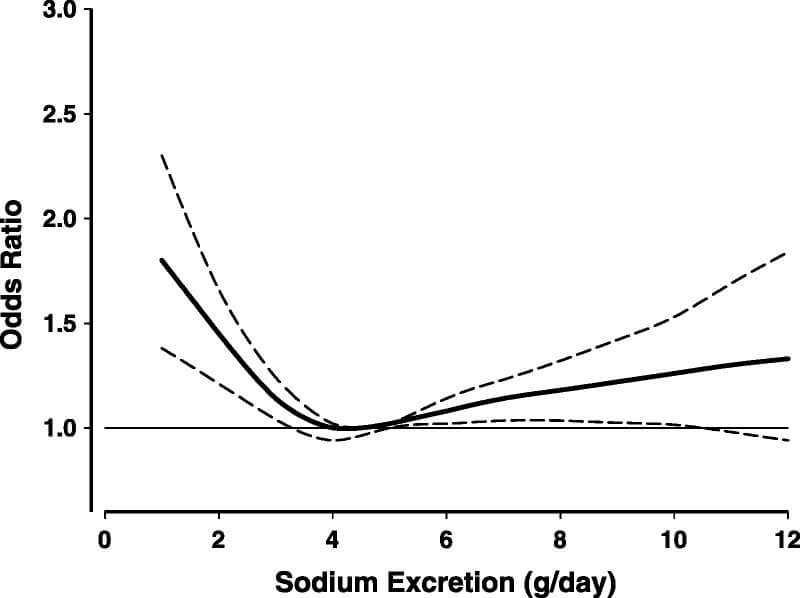
In the 1970s, the hypertension researcher Dr. Lewis Kitchener Dahl “induced high blood pressure in rats by feeding them the human equivalent of 500 grams of sodium a day.”
That experiment, along with some observational studies that followed, gave birth to the myth that consuming “too much” salt causes high blood pressure and cardiovascular disease.
As a result, governments started including sodium recommendations in their dietary guidelines.
The American Heart Association recommends no more than 2,300 milligrams per day and an ideal limit of no more than 1,500 mg per day for most adults, especially for those with high blood pressure. They claim that even cutting back by 1,000 mg a day can improve blood pressure and heart health.
The truth is that limiting your salt intake is terrible advice because study after study has confirmed that eating less than 2,000 milligrams of sodium per day (the recommendation from our government) poses the greatest risk of heart disease.
So your sweet spot is actually between 5,000 to 8,000 milligrams, depending on how active you are, how much you sweat, etc. That’s about four times as much as the U.S. government says your sodium intake should be.
Consuming enough dietary salt is incredibly important for our bodies to function optimally because sodium plays a critical role in normal nerve and muscle function. I eat a significant amount of salt every day — I add it to all my meals — and my cardiovascular and inflammatory markers are exactly where they should be.
But one thing that’s important is to use unprocessed salt that includes all of the trace minerals naturally found in salt. That means you should stay away from bleached and highly processed salts, and buy good quality Himalayan salt instead. We use Redmond Real Salt for all of our meals.
Myth #8: Whole Grains Are Better Than Processed Grains
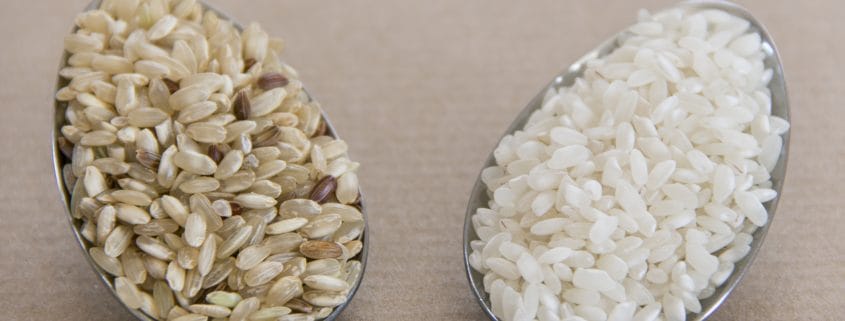
While I highly recommend avoiding the consumption of all grains (as I outlined in my meat vs. plants article), I specifically recommend you avoid whole grains.
That’s because whole grains include the parts of the seed, such as the hull, that contain the highest amounts of plant toxins (also known as antinutrients). As a result, I consider processed grains, such as white rice, the less-toxic option.
In other words, processed grains are less unhealthy than whole grains — but I wouldn’t consider either one a healthy food.
Myth #9: You Need to Eat Veggies
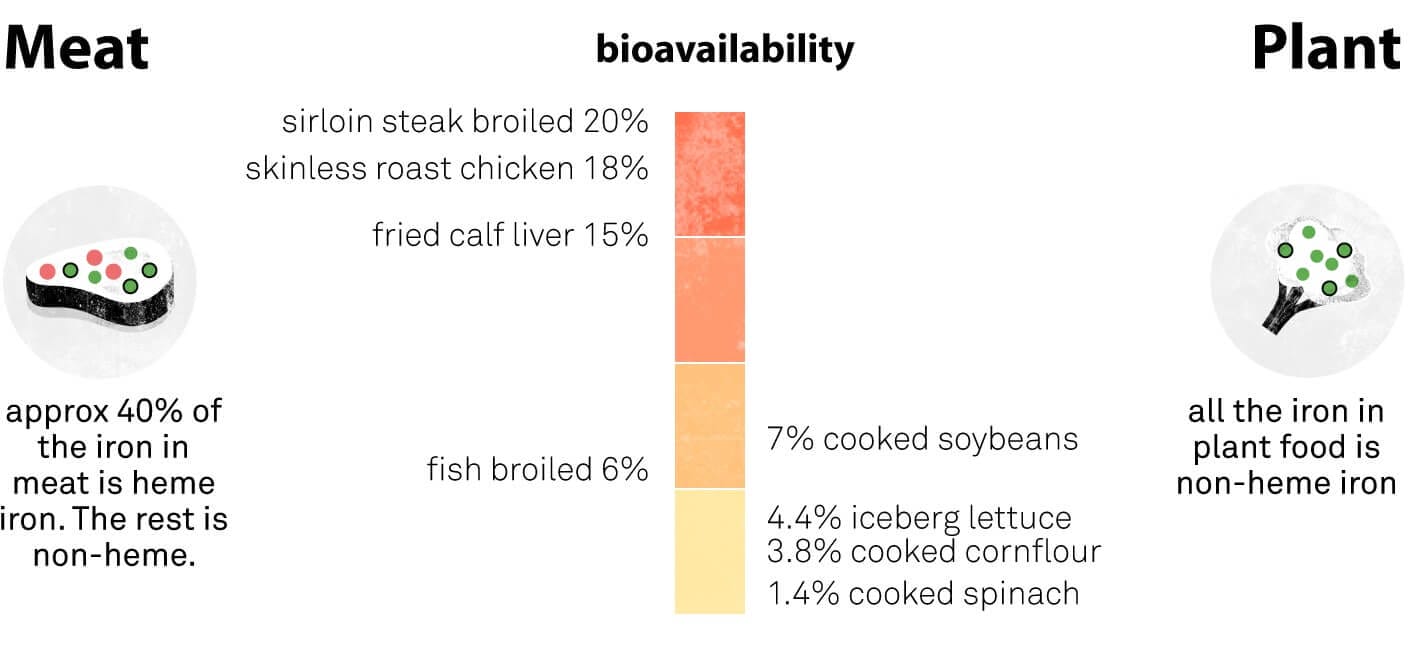
Another common misconception (and one that I addressed in detail in this blog post) is that you need to consume a variety of vegetables to get all the micronutrients (i.e., the vitamins and minerals) your body needs to stay healthy and thrive.
The truth is that plants are an inferior source of nutrients — including protein, vitamins and minerals — because most of the nutrients in plants are poorly absorbed by the human body.
A much better source of nutrients for humans (and carnivorous animals alike) is organ meat (and liver in particular). I wrote about this topic in great detail in my article about why you should include organ meats in your diet, but in a nutshell, organs are excellent sources of highly-bioavailable and easy-to-absorb micronutrients and they don’t have any of the toxins found in most plants.
For example, liver alone has over 25 vitamins, minerals and coenzymes — more than any other food.
It’s also the reason why I decided to launch my own freeze-dried organ meat supplements brand — because beef liver capsules offer a convenient way to make organ meats a daily part of your diet.
Myth #10: Broccoli, Kale and Spinach Are Superfoods

All of the so-called superfoods — including broccoli, kale and spinach — are loaded with antinutrients that wreak havoc in your diet and prevent the absorption of vitamins and minerals.
That’s why I recommend removing these foods from your diet. If you like how they taste, make sure you cook them at high heat to destroy (at least some of) their toxins.
If you’ve been consuming these so-called health foods because you were concerned about getting enough nutrients in your diet, consider switching to fresh organ meats or supplementing with desiccated organs.
Myth #11: Kids Need to Drink Milk to Get Calcium

While dairy is an excellent source of calcium (if you’re able to digest it), it’s certainly not the best source — especially from an evolutionary perspective.
Before we humans started farming, our Paleolithic ancestors didn’t have access to fresh milk or cheese. So where did they get their calcium from? Bones! Chewing on bones is a great way to get enough calcium to keep your bones and teeth healthy.
I admit that most of us don’t chew on bones anymore — and we usually cut our bone-in ribeye with a knife instead of using our teeth. However, there are other excellent sources of calcium, such as bone-in fish (our youngest child loves sardines), that are more compatible with our modern lifestyle.
The bottom line is that while kids don’t need to drink milk to get calcium, it’s arguably a convenient source. But considering that humans stop making lactase (the enzyme that breaks down lactose) as they grow older, and considering the inflammatory nature of the casein protein in regular cow’s milk, I recommend sticking with aged or fermented dairy products that were made from animals that produce A2 milk, such as jersey cows, goats, sheep or camel.
Check out my blog post on the pros and cons of consuming dairy for more information!
Myth #12: Our Bodies Need Carbs
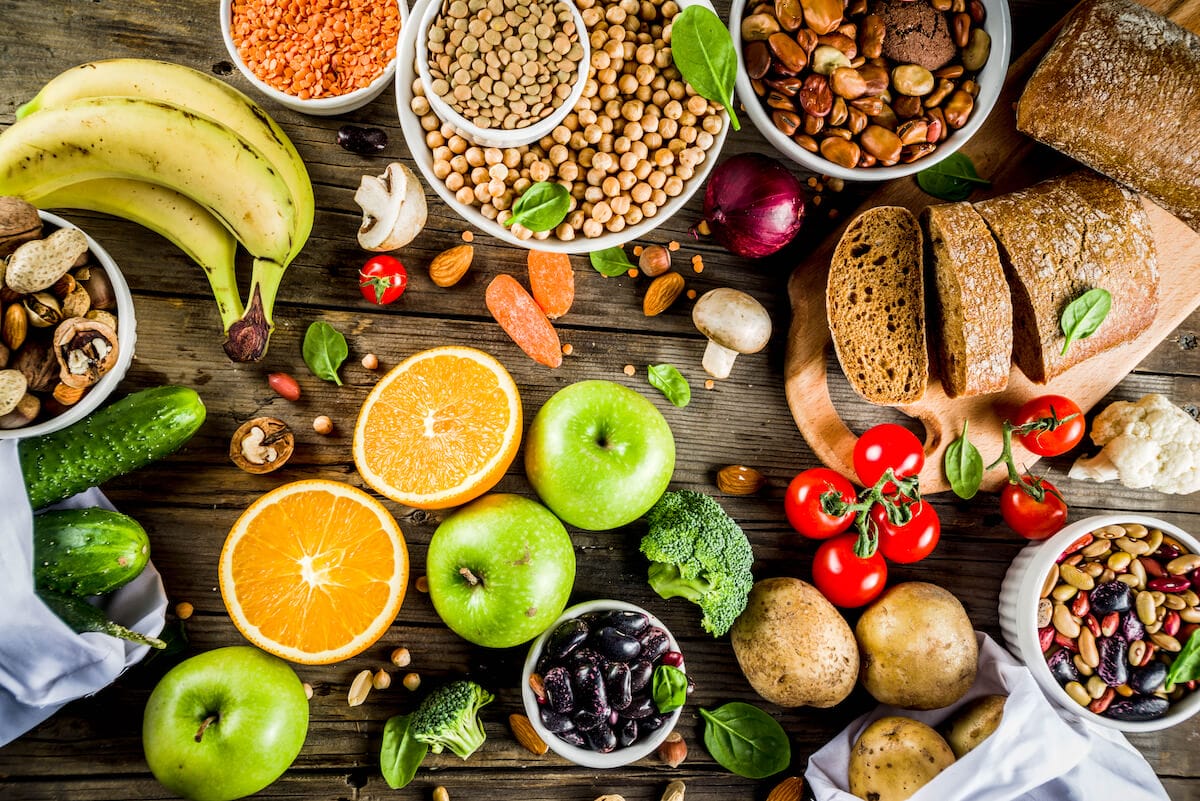
While it’s true that certain cells and organs in the human body require glucose as a form of energy, that doesn’t mean we have to consume carbohydrates.
The body can make its own glucose from non-carbohydrate sources in a process called gluconeogenesis, as I outlined in my article about the benefits of a Paleolithic ketogenic diet.
That said, just because our bodies can make glucose on-demand doesn’t mean you should cut out all carbs from your diet. Gluconeogenesis is an “expensive” process that’s meant to act as a failsafe in the event that dietary sources of carbohydrates aren’t available (e.g., in winter when nothing grows).
In other words, you won’t die if you go without carbs for a while (I’ve done it for over two years), but doing so is probably not ideal in the long run, as Dr. Paul Saladino (a leading authority in animal-based eating) explains in this video.
Myth #13: All Carbs Are Bad
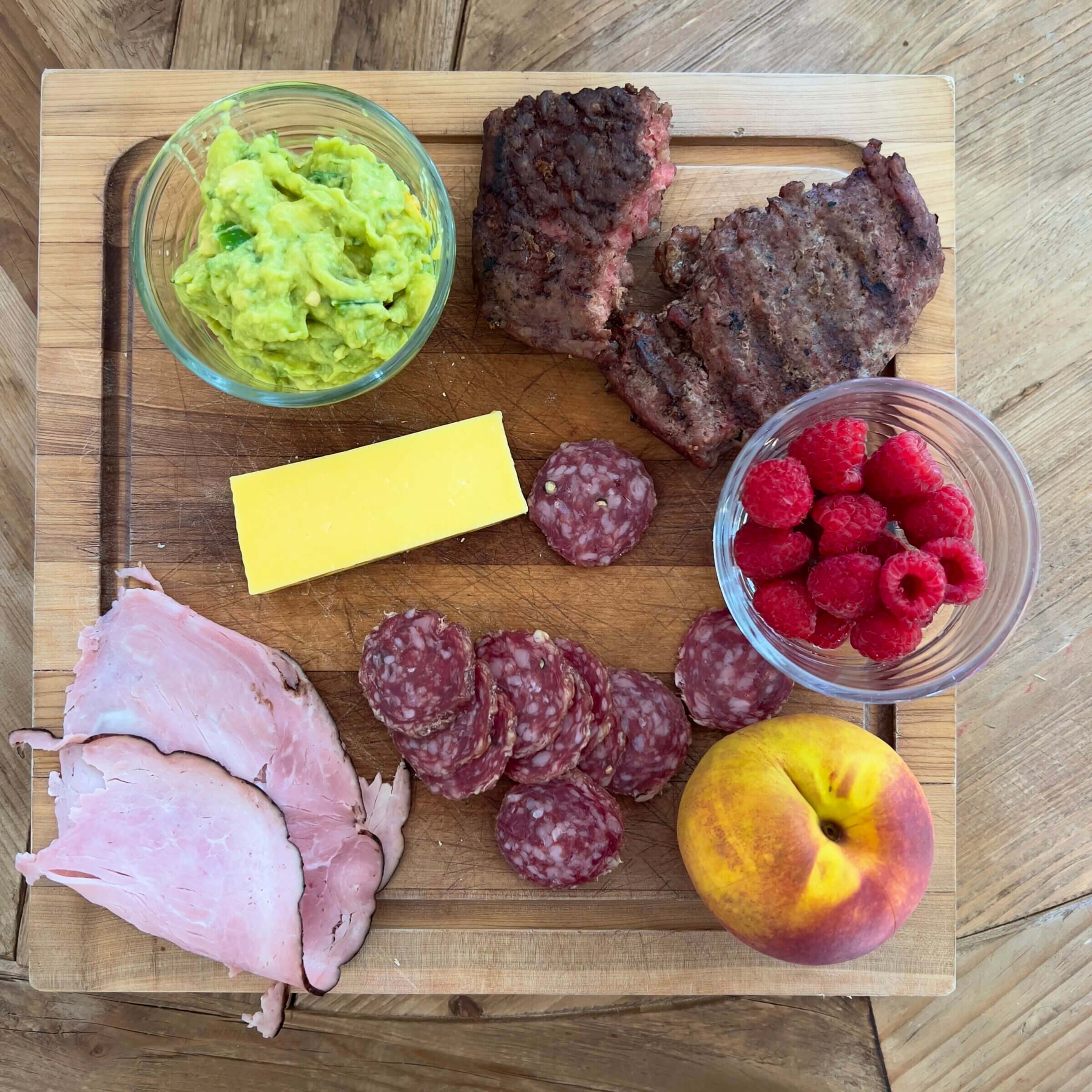
Like most people who follow a low-carb high-fat diet (such as the ketogenic diet), I used to think that carbs are bad and that the fewer carbs you consume the better off you’ll be.
Unfortunately, that line of reductionist thinking is flawed.
There’s a reason why humans have the ability to efficiently metabolize carbohydrates and turn them into energy (glucose) or store them as fat. On the flip-side, just because humans have a failsafe mechanism to make glucose from non-carbohydrate sources doesn’t mean we should be solely relying on it to feed cells that require glucose for fuel.
Considering that we know that certain cells in our body (e.g., red blood cells) require glucose, forcing the body to make glucose from non-carbohydrate sources (gluconeogenesis) is incredibly inefficient (after all, it’s a backup mechanism of the body to prevent hypoglycemia). And knowing that abstaining from all carbs for long periods has negative health implications for most people (e.g., electrolyte and hormonal imbalances), I’d argue that humans are supposed to satisfy their glucose requirements from dietary sources.
Additionally, there is no reason to suggest that our Paleolithic ancestors didn’t consume carbs in the form of wild fruits or honey when they found them. And if you look at modern hunter-gatherer tribes, such as the Hadza, you’ll realize that they consume a fair amount of carbohydrates — especially raw honey from wild bees.
As a result, we can conclude that carbs aren’t bad by default.
But despite all of this evidence, the primary reason why I no longer think that all carbs are bad is that I noticed how the “no-carb” lifestyle I maintained for over two years negatively impacted how I felt. For example, my thyroid and testosterone levels dropped, I suffered from electrolyte imbalances, and the quality of my sleep declined.
You can read more about all that in my ultimate guide to the Paleolithic ketogenic diet. But in a nutshell, I no longer recommend cutting out all carbs and trying to stay in ketosis for extended periods. These days, I consume moderate amounts of raw honey and seasonal fruits, and I feel and sleep better as a result.
Myth #14: Drinking Alcohol Helps You Sleep Better
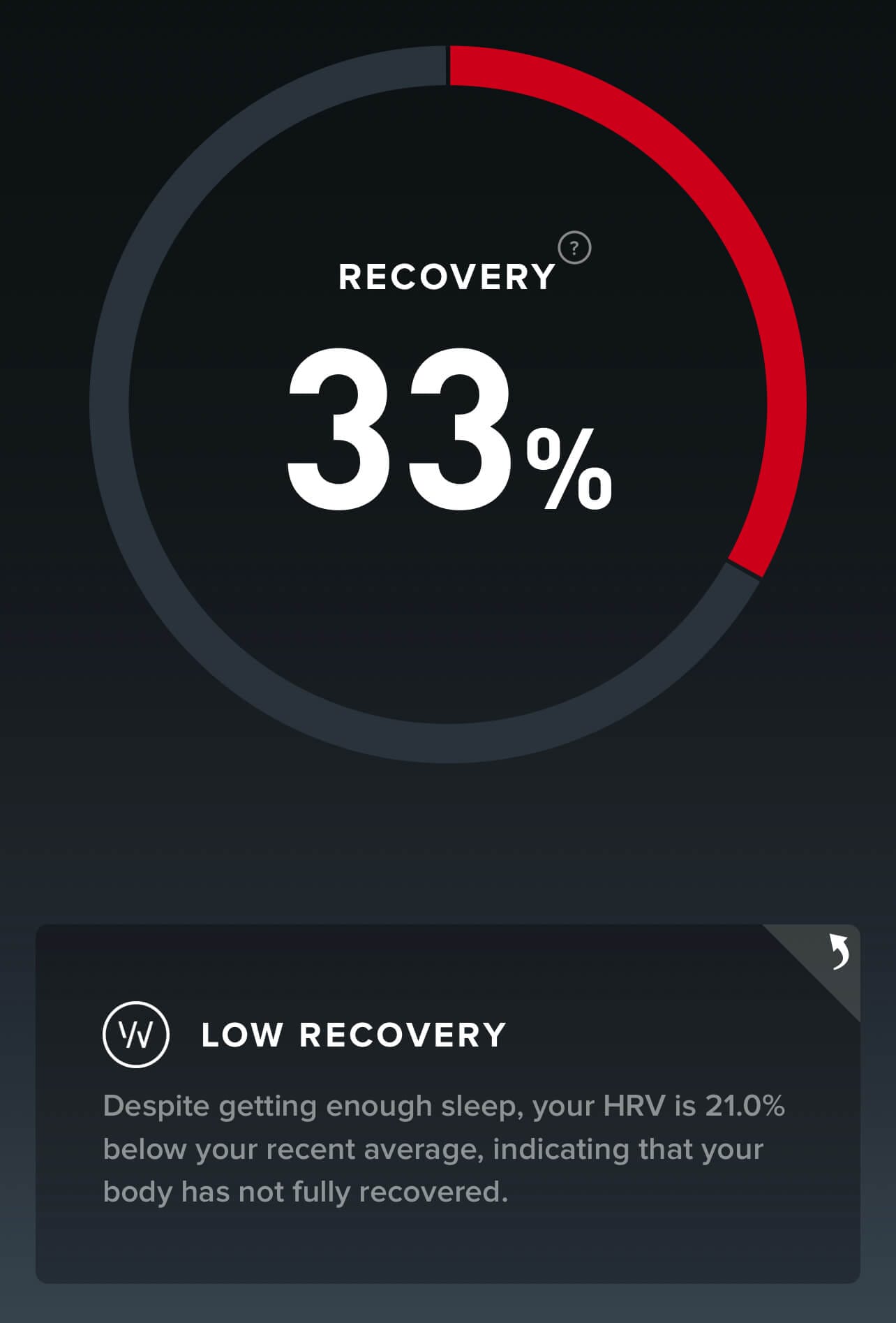
I wish this myth was true, because I enjoy a glass of red wine at night. Unfortunately, while alcohol might make you feel sleepy and help you to fall asleep quicker, it negatively impacts the quality of your sleep. In other words, you’ll get less deep and REM sleep if you drink alcohol close to bedtime.
I’ve been tracking my sleep and biometrics for years and have conducted several experiments to find out how alcohol impacts my sleep and my ability to recover. Unfortunately, my experiments confirmed what I already knew: alcohol does not make me sleep better.
For example, I use WHOOP to track the quality of my sleep and cardiovascular biometrics including resting heart rate and heart rate variability (HRV). Based on a brief questionnaire I answer every morning after waking up, WHOOP reported that every time I consumed alcohol close to bedtime, my recovery score dropped by an average of 10%.
In comparison, when I was sick with COVID-19, my recovery score dropped by 12%. In other words, consuming alcohol has almost the same impact on my heart rate, HRV and sleep quality as a viral infection.
The good news is that if you enjoy an early dinner and leave several hours between your meal and bedtime, you can enjoy a glass of your favorite adult beverage without dramatically impacting your sleep.
You can also opt for something like Hard Ketones, which utilizes a type of alcohol that doesn’t have the same negative health impacts as “regular” alcohol.
I usually go to bed between 8:30 and 9 p.m., and if I have dinner between 4:30 and 5 p.m., I can easily have a glass of red wine without disrupting my sleep. So while “day drinking” might be socially questionable, it’s actually better for your sleep.
You can learn more about the factors that impact sleep in this article.
Myth #15: Coke Zero is Healthier Than Regular Coke
This one is not so much a myth as a misguided comparison. Both Coke Zero and regular Coke are junk products that should have no place in a human-appropriate diet.
The big difference between these two beverages is how they impact your glucose metabolism. Regular Coke is loaded with sugar that causes a massive spike in blood glucose (as I learned first-hand during a recent experiment).
On the other hand, Coke Zero doesn’t have any sugar, and is thus considered a good option for anyone who doesn’t metabolize glucose well. The problem is that the artificial sweeteners used in sugar-free beverages also negatively impact glucose metabolism, by tricking the body into thinking that there is no need to release insulin after the consumption of sweetened beverages.
You can learn more about all of the issues associated with artificial sweeteners in this article.
Myth #16: The More Water You Drink, The Better
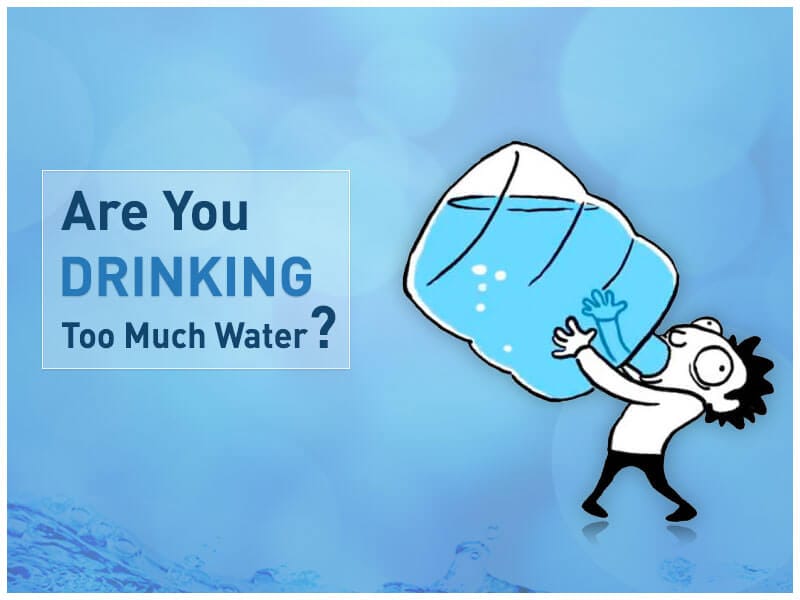
Water is without a doubt vital for your health and well-being. Dehydration can lead to severe kidney issues, headaches, decreased skin elasticity and sleepiness. So it’s important to remain sufficiently hydrated.
But that doesn’t mean more is better (a fallacy that’s common in the nutritional world). Drinking too much water can cause water poisoning, electrolyte imbalance, seizures, brain damage, coma and even death.
So how much water should you drink? Unfortunately, there’s no simple answer because it depends on several factors, including how active you are and how much you sweat.
The easiest way to judge if you’re sufficiently hydrated is to look at your urine. If it’s light yellow, you’re good. If it’s dark yellow, you’re dehydrated and if it’s brown or dark, you should call a doctor.
Myth #17: You Can Out-Exercise a Bad Diet
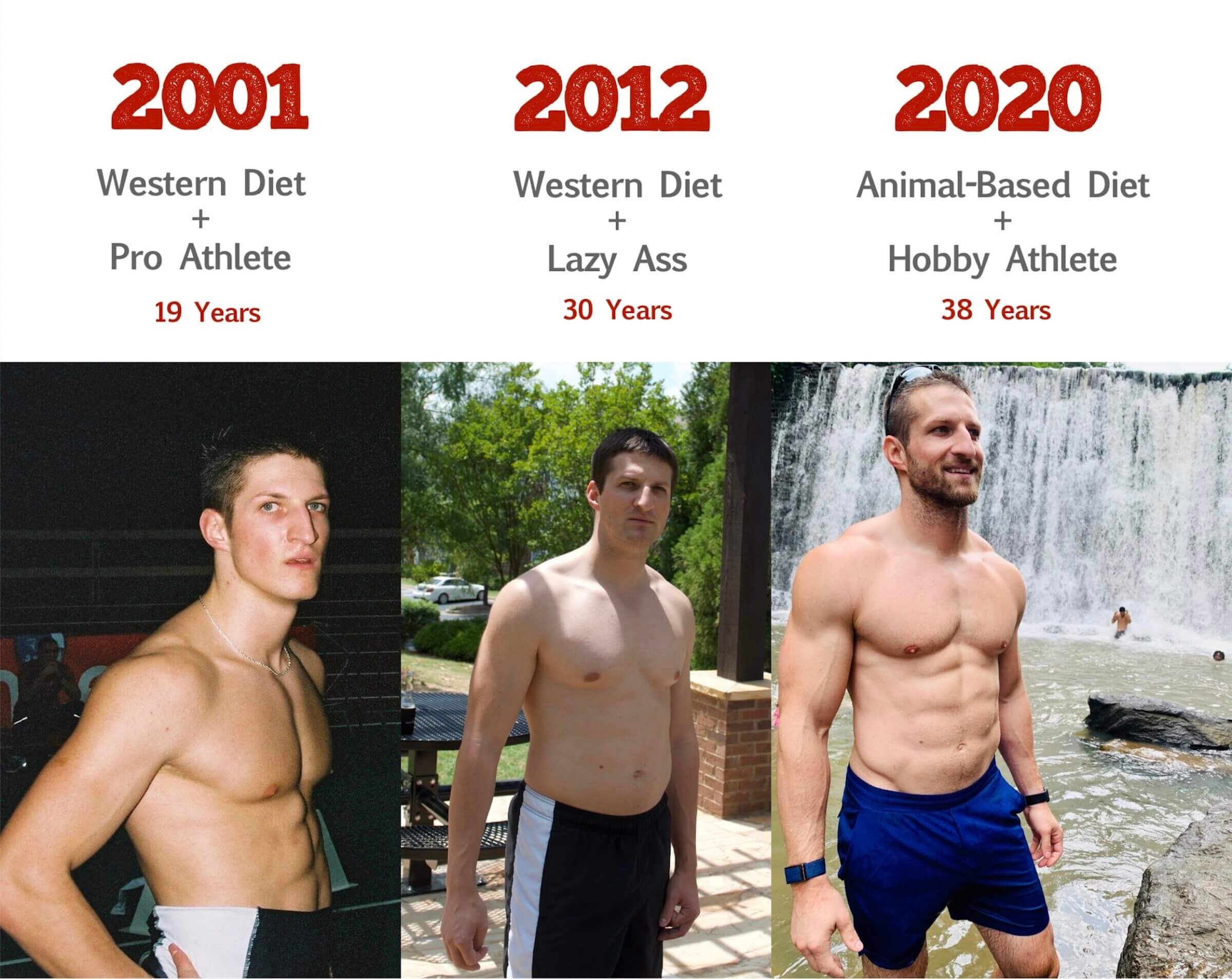
In my early 20s, I was a professional track and field athlete and I thought I could eat whatever I wanted because I’d burn it off anyway.
Unfortunately, that’s not the case. You can’t make up for a bad diet (or bad sleep) with more exercise. If you don’t eat a species-appropriate diet consisting of the foods that humans have consumed for millions of years, your health and performance will suffer eventually.
While I was a pro athlete, I suffered from irritable bowel syndrome (IBS), weak bones and skin (I broke bones in my feet just by sprinting and got stretch marks without dramatic weight gains), and was injured more times than I can count.
It took me until my late 30s to realize that nutrition and performance are closely connected. As of this writing, I’m almost 40 years old but I’m fitter, stronger and healthier than I’ve ever been.
Myth #18: You Should Always Eat Three Meals Per Day
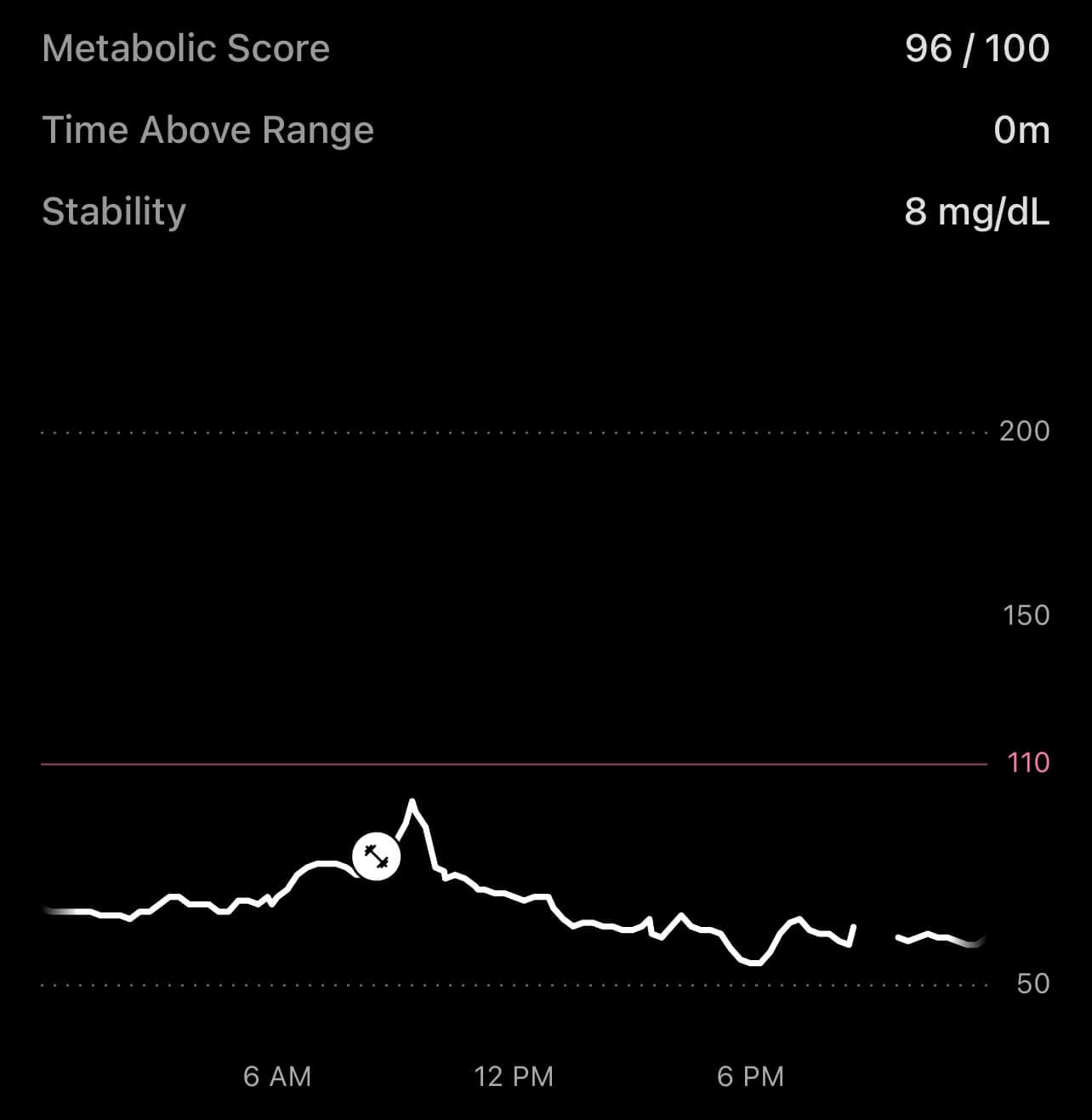
If you think about how our hunter-gatherer ancestors lived for millions of years, you’ll probably realize that they ate when they found food. They didn’t have a fridge or set meal times, so they ate when the opportunity presented itself.
Having breakfast, lunch and dinner is a modern invention that’s got nothing to do with our metabolic needs. The reason why misguided dietitians decided that you should eat several meals a day with snacks in between is to help “control” blood sugar.
Think about it: if you consume a meal that’s high in processed carbs, your blood sugar spikes before plummeting. At its low point, you might feel sluggish and have low energy. So the common advice is to have a little snack to make your blood sugar rise again before it plummets right back down before the next meal.
That rollercoaster is absolutely horrible for your metabolism and your insulin sensitivity.
In reality, if you’re metabolically healthy, you should be able to perform optimally with or without food. I usually eat two meals a day at different times to fulfill my caloric needs, and I’m perfectly fine with it. On days that I don’t work out and have lower caloric needs, I might only eat once (or not at all).
And since I’m metabolically healthy and my body can switch back and forth between using glucose and fat (ketones) for fuel, I don’t feel crappy if I don’t eat.
Myth #19: Intermittent Fasting Isn’t Healthy
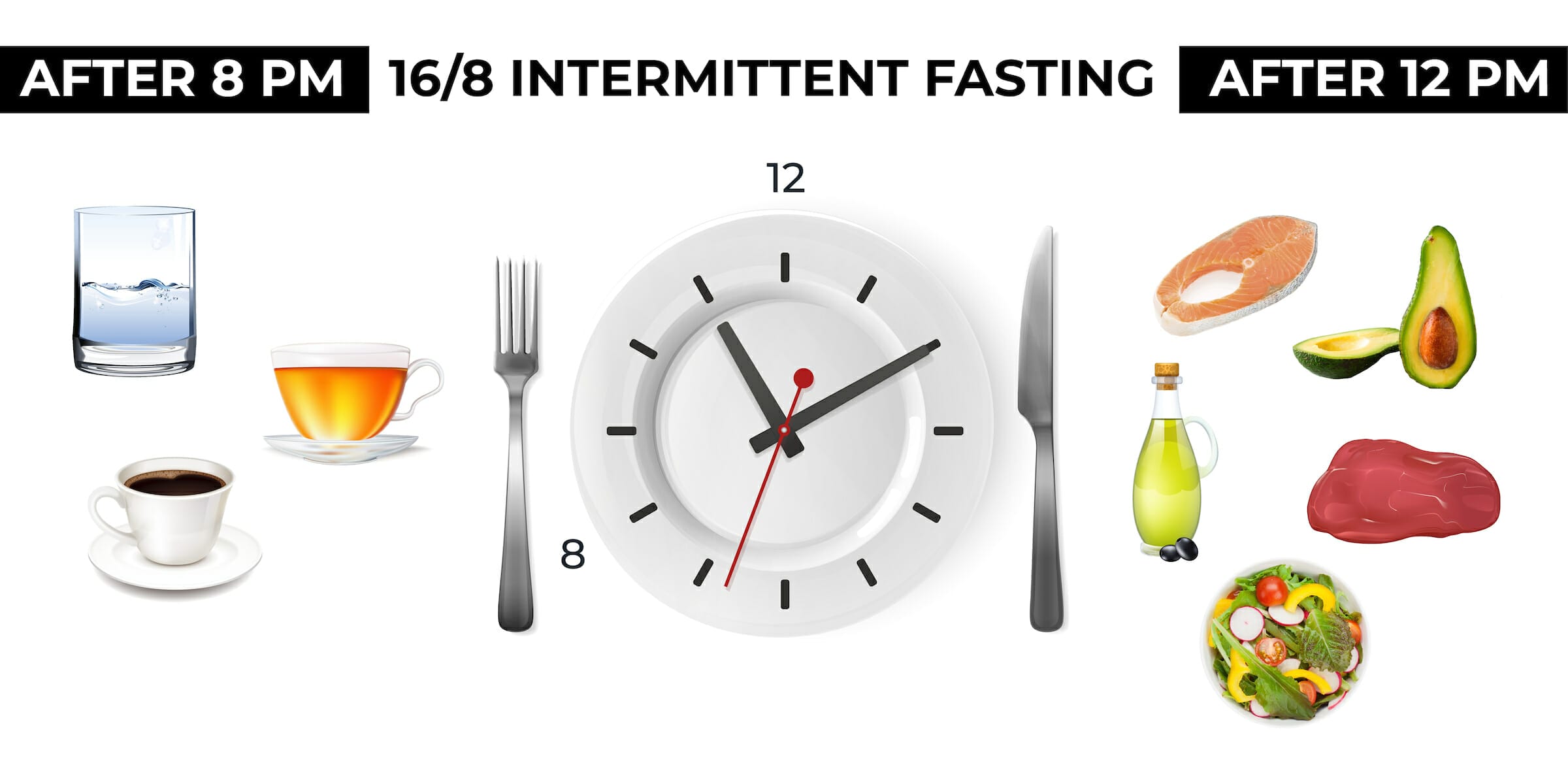
While it’s true that the body converts the food we eat into energy, not eating (i.e., fasting) doesn’t mean that we run out of fuel and thus harm the body.
The latter is the reason why many people think that fasting isn’t good for our health. But as I mentioned earlier in this article, the body can convert non-carbohydrate sources, such as protein, into glucose for energy in a process called gluconeogensis. The body can also convert some of its own fat into ketone bodies and use them for energy as well.
While you shouldn’t rely on either of these mechanisms for extended periods, there is scientific evidence that allowing your body to go without food for short periods has notable health benefits — as I explained in my ultimate guide to intermittent fasting.
The concept behind “stressing” your body with fasting, cold exposure or exercise is called hormesis, and it’s something humans have experienced throughout evolution.
For example, fasting has been shown to increase your lifespan, make your cells more resilient to oxidative stress, protect brain cells and improve cognitive function, and increase the rate you’re burning fat.
As I’m sure you can imagine, humans have practiced intermittent fasting for millions of years. Not because someone told them it was healthy, of course, but out of necessity; if our ancestors didn’t find food, they had to fast. It was as simple as that!
I fast intermittently on most days, just as a product of the fact that I eat only two meals a day. As a result, I usually have between 14 to 16 hours between dinner and breakfast. Sometimes I even extend my fast to up to two full days.
As with anything else, more isn’t always better and you can certainly overdo fasting, which can lead to the same health issues as a long-term ketogenic diet (including hormone and electrolyte imbalances, reduced sleep quality and others).
Myth #20: You Can’t Fix “Bad” Genes
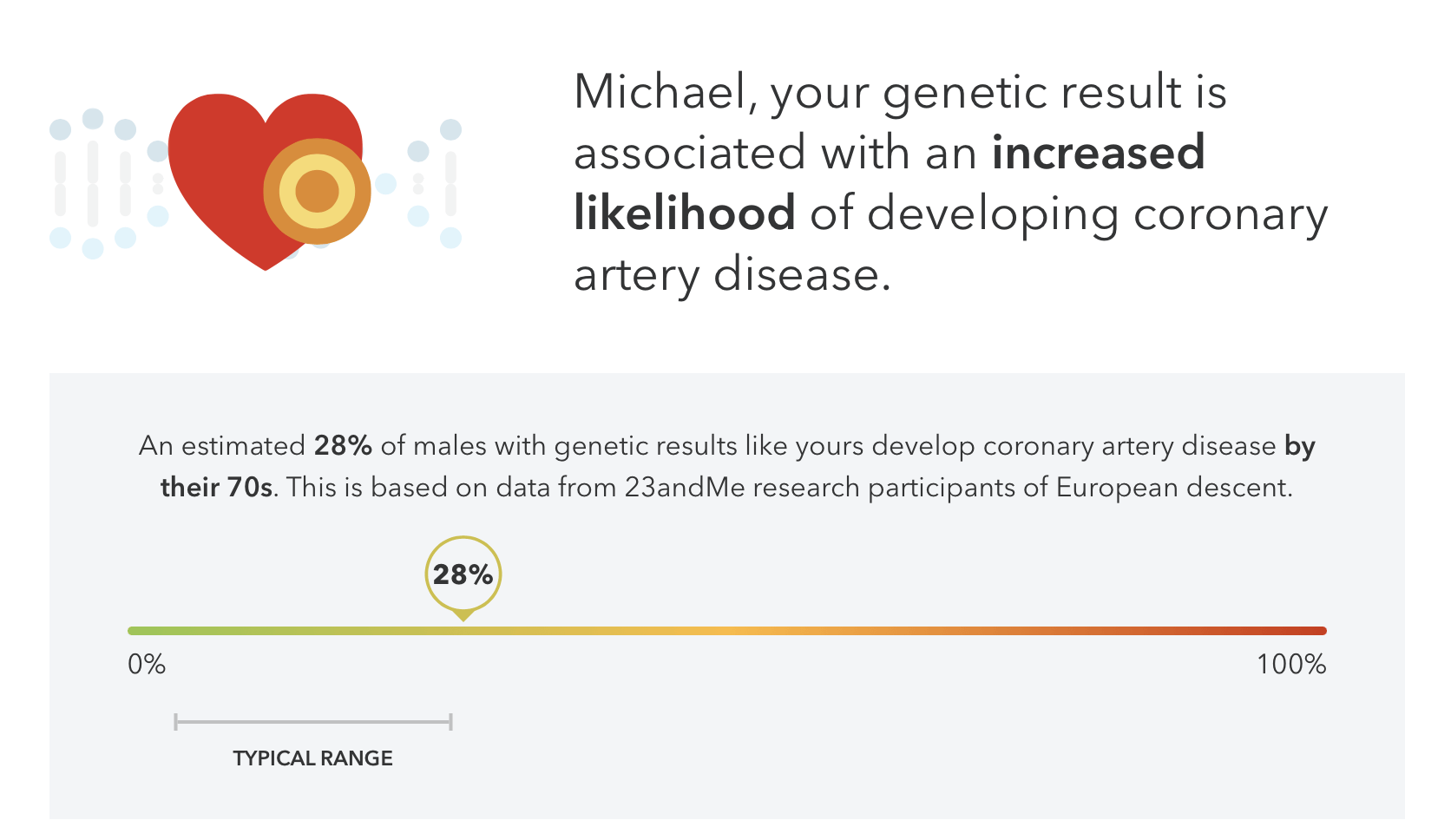
It’s easy to think that your genes determine who you are, and that there’s nothing you can do about that. The truth is that gene expression (the determination of what genes get turned on and off) can very much be influenced by your lifestyle.
The science behind this is called epigenetics and is based on our knowledge that there is a layer on top of your DNA that controls gene expression.
For example, physical activity, food and sleep (to name a few factors) can modulate gene expression. So just because you inherited genetic markers for a specific disease (i.e., Alzheimer’s) that doesn’t mean you’ll definitely develop that disease. And following a healthy lifestyle can significantly reduce your risk.
Case in point: I have a genetic predisposition for coronary artery disease, but based on all of the tests I’ve performed, including blood work and a calcium score test, I have zero signs of this disease.
Myth #21: Gluten-Free Food is Healthy

It’s no secret that a significant portion of the population is either sensitive to gluten (an inflammatory protein found in many grains) or has an allergic reaction to it — as in the case of celiac disease.
As more health-conscious consumers started jumping on the gluten-free bandwagon, food manufacturers have flooded the market with gluten-free products.
The problem is that replacing gluten-containing ingredients (such as wheat, barley and rye) in highly-processed junk food with rice, nut or seed flours doesn’t make those products any healthier.
Junk food remains junk food, without or without gluten. As a result, I generally recommend staying away from processed foods that are labeled as gluten-free.
The exception to this rule is minimally-processed and naturally gluten-free products, such as sweet potato chips made with coconut oil.
Myth #22: You Can Eat Everything in Moderation
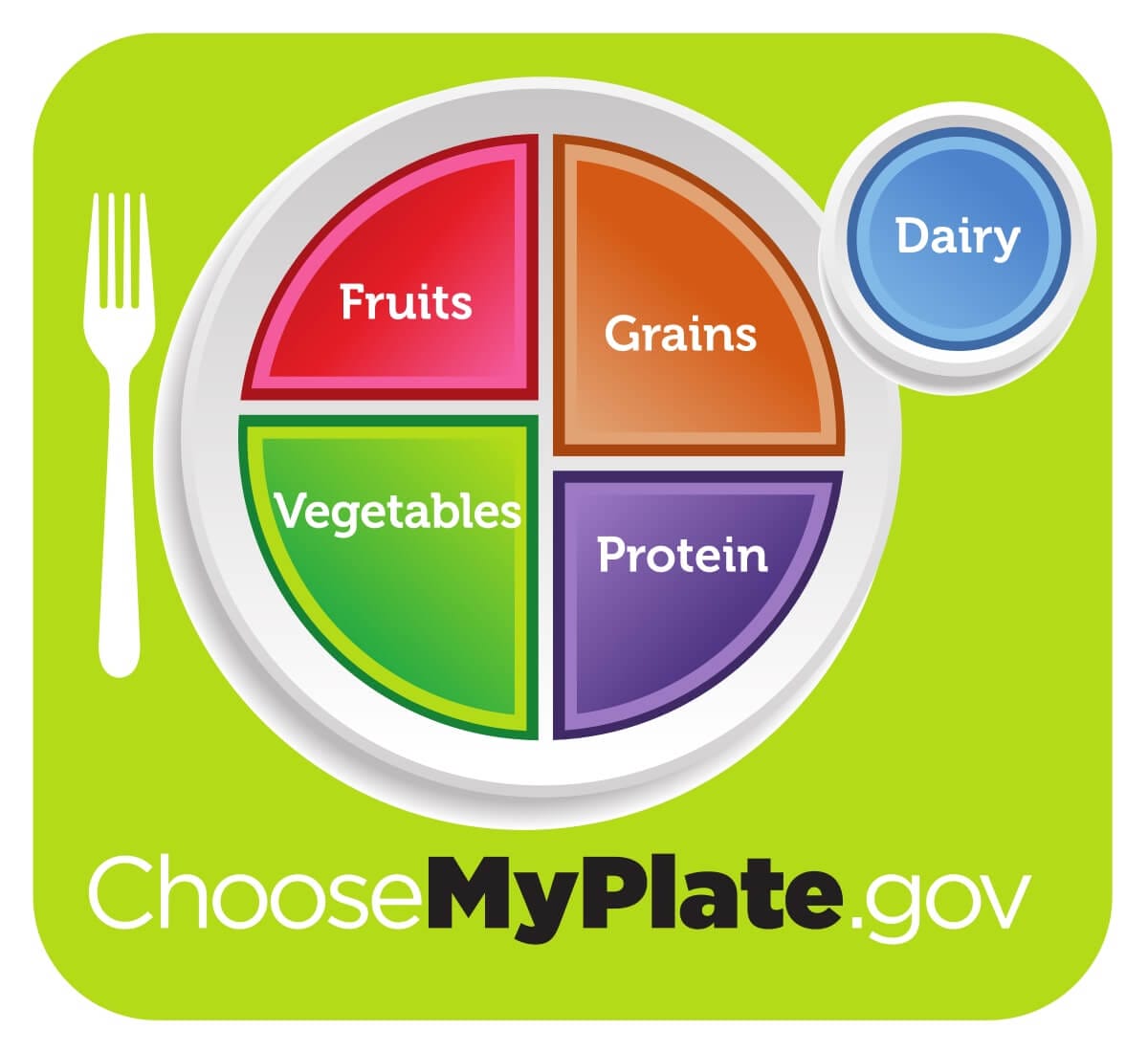
You often hear that maintaining a healthy diet means you can eat everything in moderation.
Let me ask you this: do you think smoking cigarettes and injecting heroin in moderation is good for your health?
If not, then why would you think that consuming highly inflammatory seed oils, toxic vegetables, grains, legumes and junk food that’s devoid of nutrients is appropriate, even in moderation?
It’s certainly true that the human body is capable of removing toxins and dealing with certain amounts of inflammatory foods. But that doesn’t mean you should make these things a regular part of your diet.
When I use the term “balanced diet,” I’m not referring to the USDA MyPlate (formally known as the food pyramid). Instead, I’m referring to a diet that’s predominantly based on animal protein, fat and organs, paired with raw honey and some of the least-toxic plants available.
You can learn more about what a balanced diet for humans means in this blog post.
Myth #23: You Gain Weight Because You Eat More Calories Than You Burn
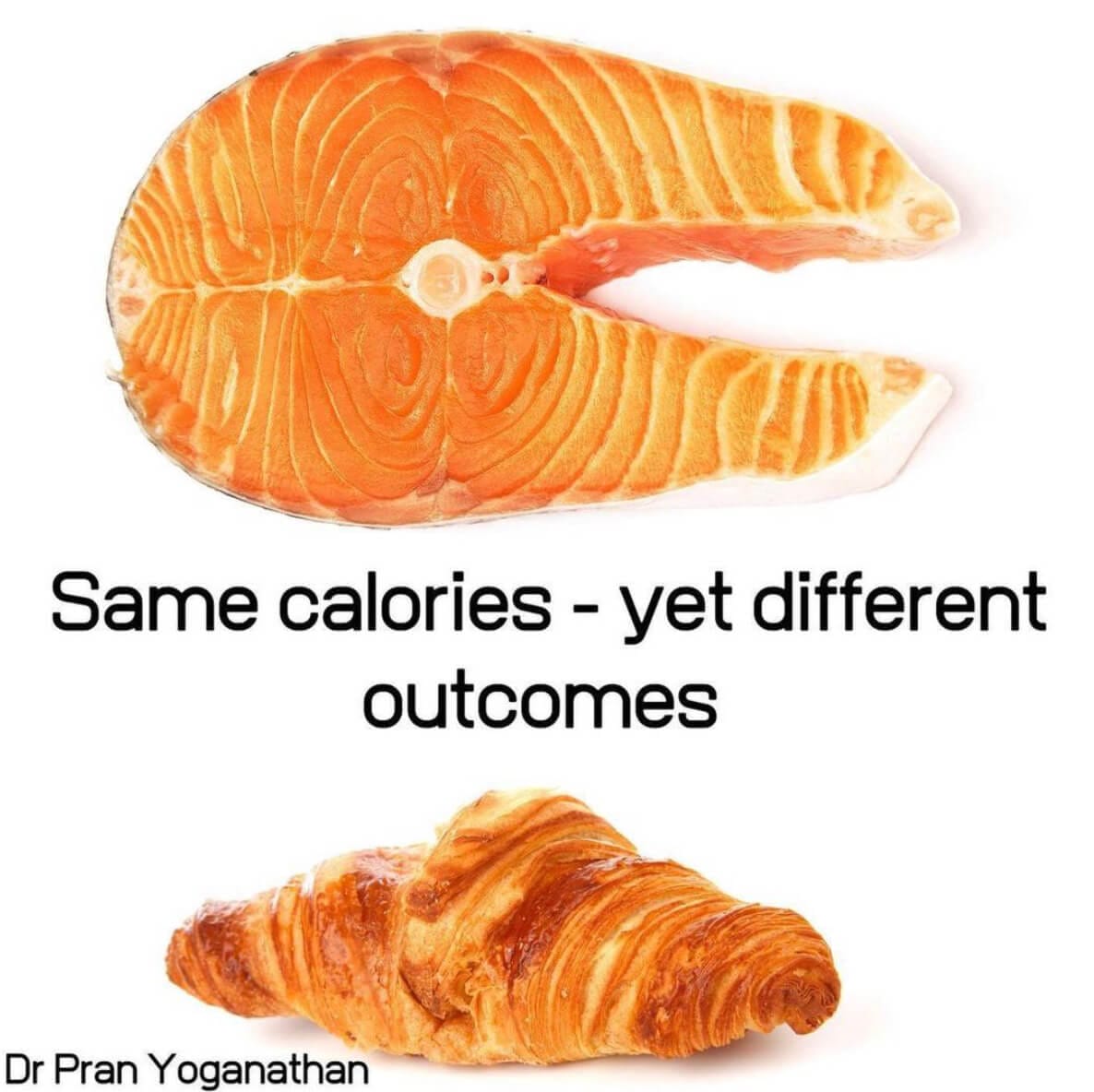
Many people think that if you consume more calories than you burn, you’ll gain weight. And conversely, that you’ll lose weight if you have a caloric deficit.
Unfortunately, that’s a flawed idea because there are several factors that determine how much energy your body extracts from the food you eat, including the type of food, your gut microbiome, your metabolic rate and other factors.
Compare a wild-caught salmon steak with a croissant; both foods have the same amount of calories, but do you really think that these calories are created equal?
The type of calories you consume matters, as does the nutrient profile that comes with them. I should also mention that a chronic caloric deficit can actually trigger the body to slow down its metabolism to conserve resources, thus hampering your weight loss goals.
As a result, the best method to lose weight is to follow the five basic steps I’ve outlined in this article. If you do, then you’ll lose weight as a byproduct.
Dietary Myths: Wrap-Up
Our modern lives and the internet have made it easy to find information quickly. Unfortunately, most of the information out there is misleading, taken out of context or downright wrong, thanks to poorly designed (or sponsored) studies, lobbyists, scientists with conflicting interests, headline-driven media outlets and well-meaning but misguided individuals.
As a result, it’s difficult for people who just want to make better nutritional choices to find reliable information. That’s the primary reason why I do what I do — to help you get on a better path towards health without having to spend countless hours reading scientific research, listening to doctors who don’t know what they’re talking about, and experimenting with different foods and interventions.
If you’re aware of any nutrition or diet myth that I haven’t covered in this article, please let me know in the comment and I’ll add it!

Michael Kummer is a healthy living enthusiast and CrossFit athlete whose goal is to help people achieve optimal health by bridging the gap between ancestral living and the demands of modern society.

